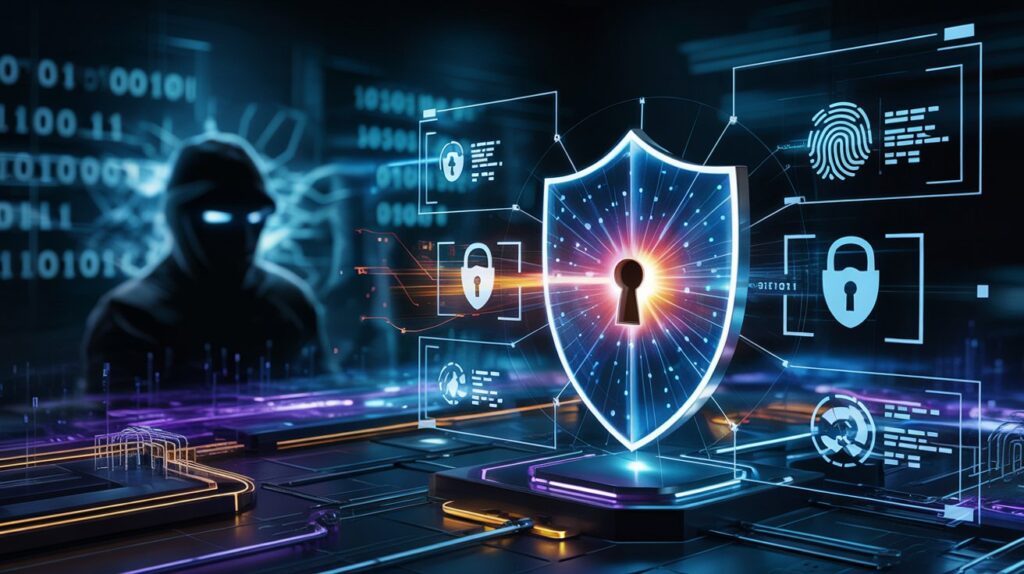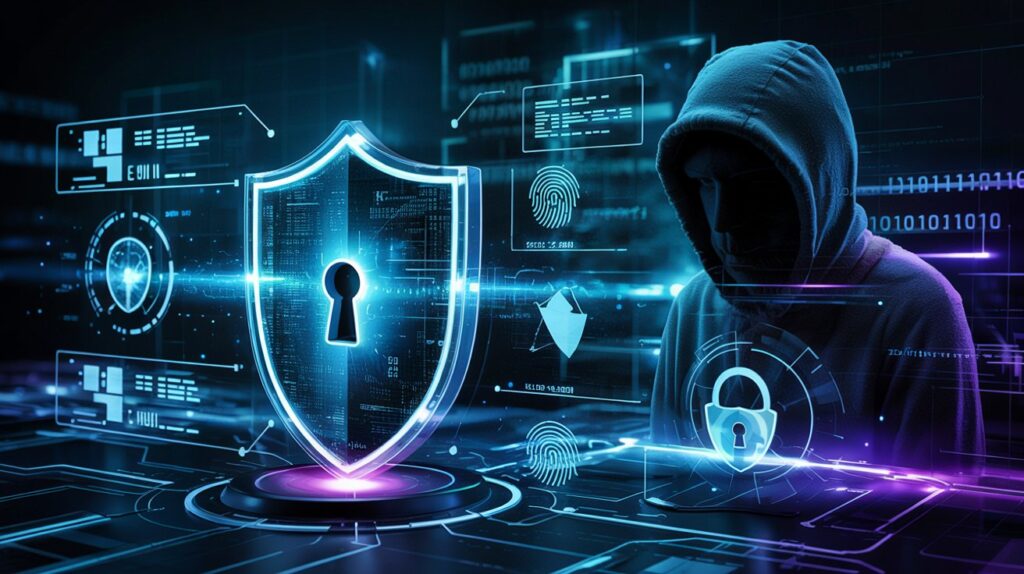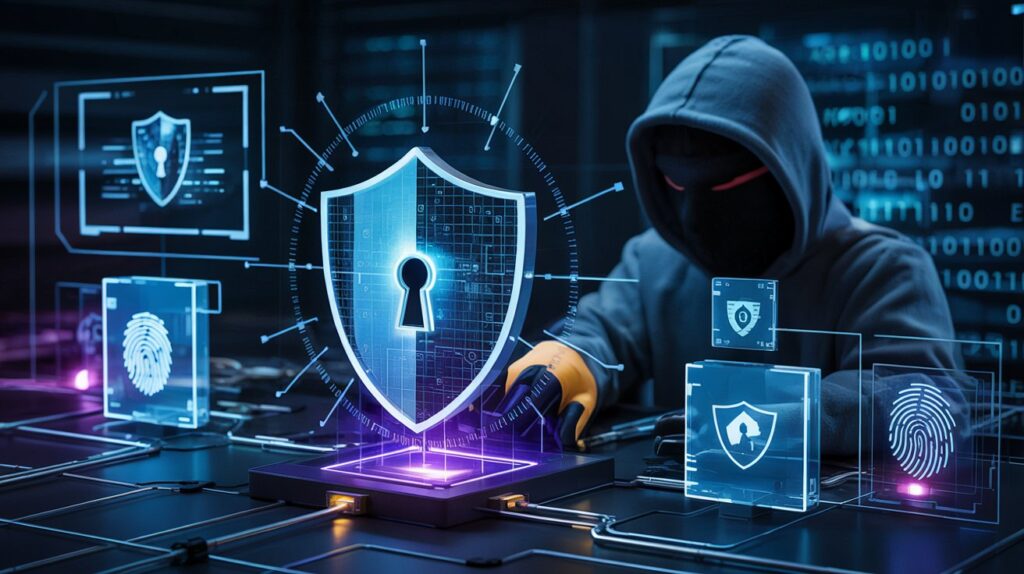Downloading File Scrolling Down
Table of Contents
How to Secure Your Personal Data Online? Full Guide
- Introduction
- Use of Strong Passwords
- Principle of Making Passwords
- Best Password Managers
- Enable Two-Factor Authentication (2FA)
- Best 2FA Services
- Protection from Phishing and Fake Emails
- Ways to Avoid Phishing
- The Use of VPN
- Best VPN Services
- Anti-Virus and Anti-Malware Software
- Recommended Anti-Virus
- Strengthen Privacy Settings on Social Media
- Essential Settings
- Take Backups
- Best Options for Backup
- Delete Unnecessary Apps and Accounts
- Use Updated Software
- Avoid Online Scams
- Conclusion
10 Major Cyber Security Myths You Should Stop Believing
- Introduction
- “I Don’t Have Anything Worth Stealing!”
- “Anti-Virus Software is Enough!”
- “Only Illegal Websites Are Dangerous!”
- “My PC is Safe, I Should Use Mac/Linux!”
- “It’s Safe to Browse Websites on Public Wi-Fi!”
- “I Can Remember My Password, I Don’t Need a Manager!”
- “I’ll Know Immediately If My Data is Leaked!”
- “Only Big Companies Get Hacked!”
- “I Can Recognize Phishing Emails!”
- “Cyber Security is Only for Tech Experts!”
- Conclusion
1. Introduction
In today’s digital age, our personal data is very important to us. We use daily social media, online shopping, banking, and other websites, which makes our data easier for hackers and cybercriminals. If you want to preserve your data, this full guide will be very useful to you. In this article, we will know the 15 best ways to secure online data in detail.
2. Use of Strong Passwords
Strong passwords must be made to avoid hacking.
Principle of Making Passwords:
✅ Length: Consist of at least 12 characters.
✅ Different Characters: Include uppercase & lowercase letters, numbers, and symbols (!, @, #).
✅ Avoid Easy Passwords: Such as “123456” or “password”.
✅ Each Account’s Separate Password: Do not use the same password everywhere.
🔹 Best Password Managers:
- LastPass
- Bitwarden
- 1Password
3. Enable Two-Factor Authentication (2FA)
Two-Factor Authentication (2FA) provides an additional protective layer. When you log in, you will receive a code on mobile, without which account access is not possible.
✅ Best 2FA Services:
- Google Authenticator
- Microsoft Authenticator
- Authy

4. Protection from Phishing and Fake Emails
Hackers often send fake emails that may seem real, but clicking on the links contained in them steals your data.
Ways to Avoid Phishing:
❌ Avoid opening unknown emails.
❌ Before clicking on the link, make sure it is real.
❌ Never share your password via email.
5. The Use of VPN
Virtual Private Network (VPN) encrypts your internet connection, which protects your data. This is especially important on public Wi-Fi (such as hotels, cafes).
🔹 Best VPN Services:
- NordVPN
- ExpressVPN
- Surfshark
6. Anti-Virus and Anti-Malware Software
Malware and viruses can steal your data. Install good anti-virus software and keep it updated.
✅ Recommended Anti-Virus:
- Bitdefender
- Kaspersky
- Malwarebytes
7. Strengthen Privacy Settings on Social Media
Control your privacy on social media so that your data is not unnecessarily shared.
Essential Settings:
🔒 Limit posts to “Only Friends”.
🔒 Turn off location sharing.
🔒 Do not accept friend requests from unknown accounts.
8. Take Backups
If your data is ever deleted or locked through ransomware, you can recover it with a backup.
📌 Best Options for Backup:
- Cloud Storage: Google Drive, iCloud, OneDrive
- External Hard Drive: Copy data from time to time.
9. Delete Unnecessary Apps and Accounts

Delete the apps or accounts you do not use. Having more accounts increases the risk of data leaks.
10. Use Updated Software
Old software can cause security risks. Always keep your operating system, browsers, and apps updated.
11. Avoid Online Scams
- Don’t share your data on unknown websites.
- Be skeptical of too-good-to-be-true deals (such as free offers).
- Enter credit card information only on reliable websites.
12. Conclusion
Protecting your personal data is very important today. By following the methods above, you can protect your data from hackers and cyber-attacks. Remember, staying safe is your own responsibility!
📢 If you liked this guide, share it so others can also secure their data!
10 Major Cyber Security Myths You Should Stop Believing
1. Introduction
There are many misconceptions about cyber security that make people unsafe. In this article, we will see 10 major cyber security myths and know their reality.
2. “I Don’t Have Anything Worth Stealing!”
🔹 Fact: Everyone’s data is valuable, whether it’s bank details or social media accounts.
3. “Anti-Virus Software is Enough!”
🔹 Fact: Anti-virus is just one layer; VPN, 2FA, and caution are essential for full security.
4. “Only Illegal Websites Are Dangerous!”
🔹 Fact: Even popular websites can get hacked.
5. “My PC is Safe, I Should Use Mac/Linux!”
🔹 Fact: No operating system is 100% secure.
6. “It’s Safe to Browse Websites on Public Wi-Fi!”

🔹 Fact: Your data can be stolen on public Wi-Fi; always use a VPN.
7. “I Can Remember My Password, I Don’t Need a Manager!”
🔹 Fact: Password managers are more secure and help use unique passwords everywhere.
8. “I’ll Know Immediately If My Data is Leaked!”
🔹 Fact: Many users find out months later that their data was leaked.
9. “Only Big Companies Get Hacked!”
🔹 Fact: Small businesses and individuals are also targeted by hackers.
10. “I Can Recognize Phishing Emails!”
🔹 Fact: Modern phishing emails look very real; caution is essential.
11. “Cyber Security is Only for Tech Experts!”
🔹 Fact: Everyone should protect their own data.
12. Conclusion
False ideas about cyber security can make you unsafe. By understanding these myths, you can better secure your data.
Wait 5 seconds…
